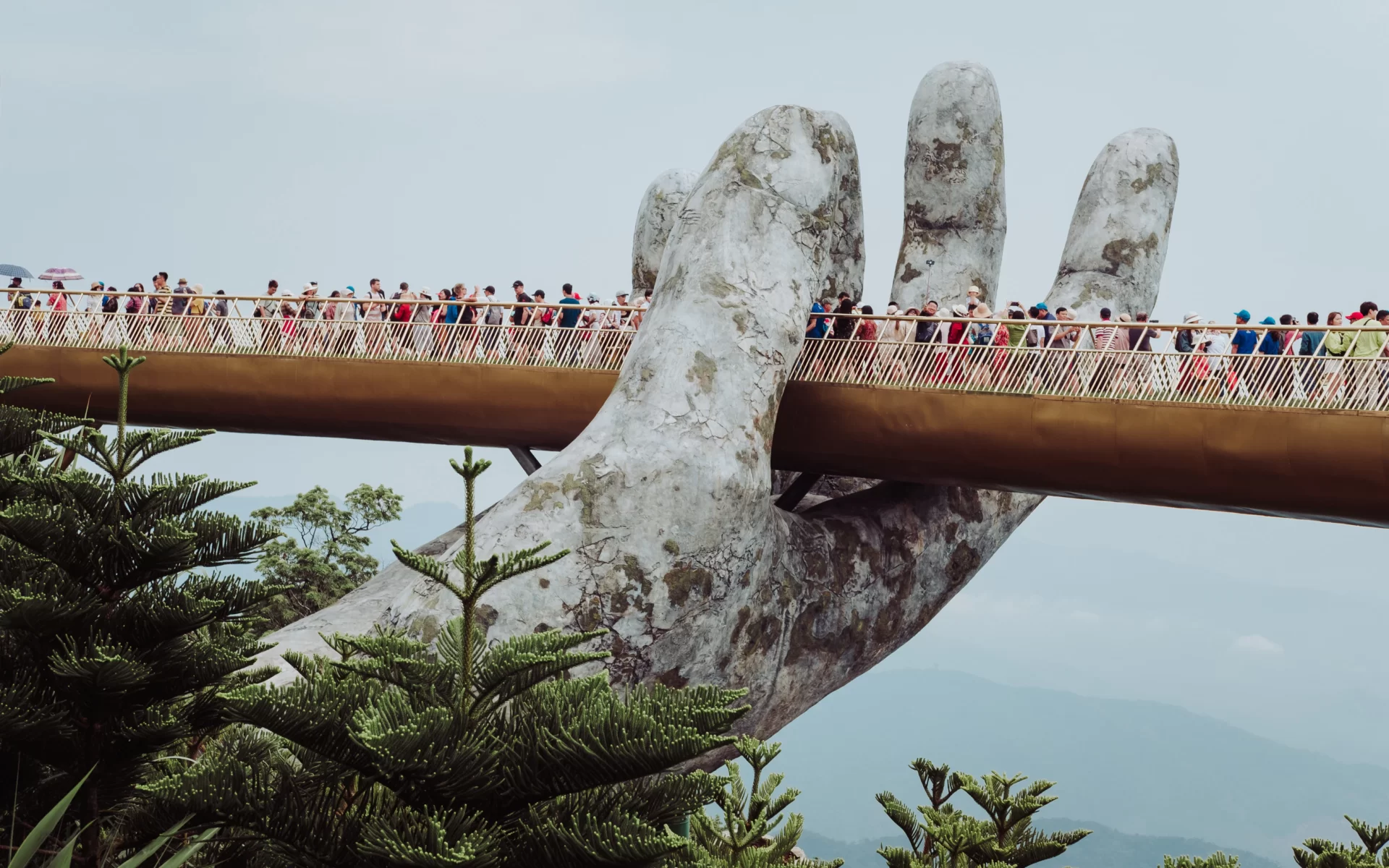Why we love Vietnam
Vietnam shifts effortlessly between serenity and buzz, from the limestone peaks of Ha Long Bay to the lantern-lit streets of Hoi An and the high-rises of Ho Chi Minh City. Highland trails wind through centuries-old villages; jungles hum with life; and a long, looping coastline reveals beach after beach of pale sand and clear water. This guide shares everything you need to know before you go.
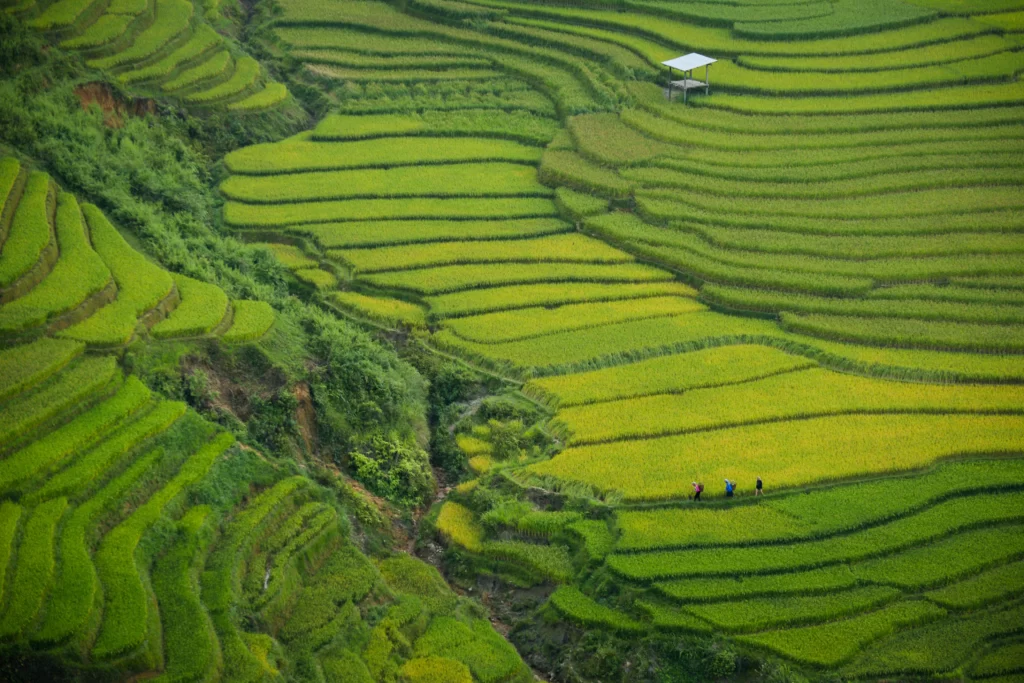
Entry requirements
UK citizens can visit Vietnam visa-free for up to 45 days. For longer stays, you’ll need to obtain a visa in advance -and if you plan to leave and re-enter the country, be sure to apply for a multiple-entry visa.
Travellers visiting Phu Quoc Island can stay for up to 30 days without a visa, provided entry is through an international port (air or sea).
Your passport should be valid for at least six months beyond your date of entry, with at least one blank page available.
Immigration officials may ask to see proof of your onward or return travel and sufficient funds for your stay. Always carry a copy of your passport and visa (if applicable) during your travels in Vietnam.
Health and safety
We are not certified to give medical advice, but we recommend you consult your doctor about your vaccination history and discuss any further vaccinations you may need for your trip. We recommend this website for travel vaccination information and advice on bringing medication into the country.
Malaria and dengue fever are present in rural areas, so bring mosquito repellent and take preventive measures if travelling off the beaten path.
Vietnam is generally safe, but petty theft can occur in crowded areas. Keep valuables secure, especially in major cities like Hanoi and Ho Chi Minh City. Be cautious when crossing streets – traffic is dense but flows predictably; walk at a steady pace so vehicles can adjust. Use hotel safes for passports and jewellery, and always drink bottled water.
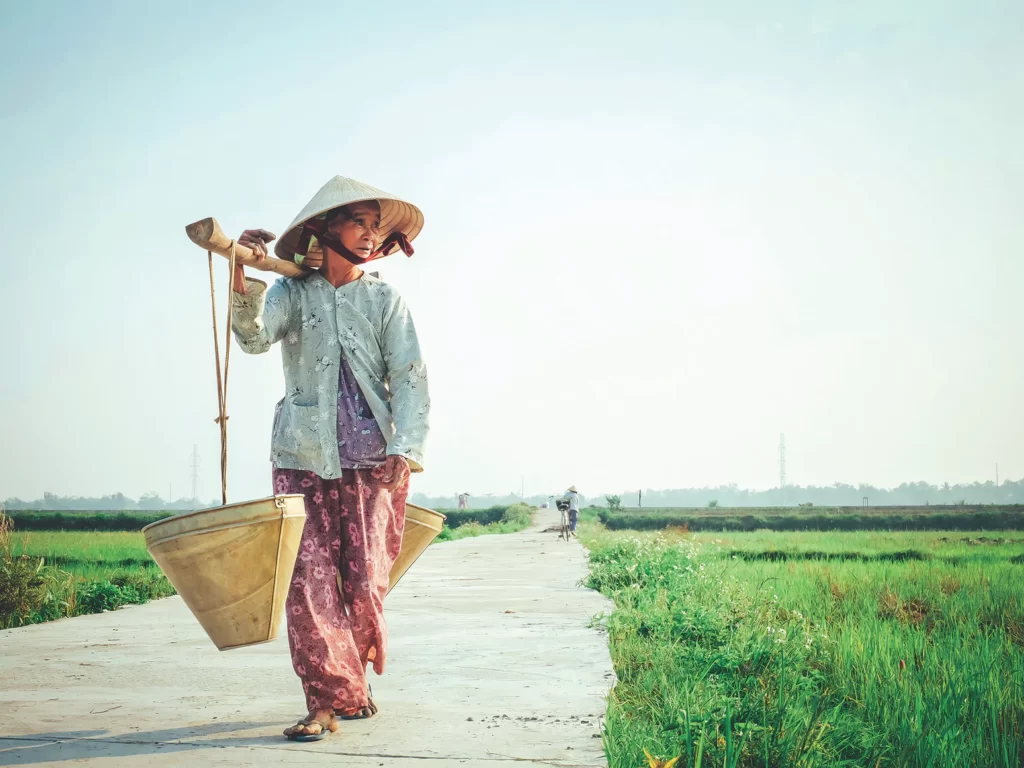
Getting around
Vietnam’s slender shape and diverse regions make getting around all part of the adventure.
Domestic Flights: Ideal for covering long distances quickly, flights connect major cities like Hanoi, Da Nang, and Ho Chi Minh City, as well as coastal hubs and island destinations.
Trains: The Reunification Express runs the length of the country from Hanoi to Ho Chi Minh City – a journey that offers spectacular views of rice paddies, beaches, and mountains.
Taxis and transfers: We can arrange all your private transfers, simply share your flight details and itinerary. In cities, use Grab (Asia’s version of Uber) for safe and reliable rides.
Climate and packing
Vietnam’s climate varies dramatically from north to south – a reflection of its long, slender shape and diverse landscapes.
Northern Vietnam (Hanoi, Sapa, Ha Long Bay)
Climate: Distinct seasons; warm, humid summers and cool, misty winters.
Pack: Layers, a light jacket for evenings, and a waterproof for northern rains.
Central Vietnam (Hue, Da Nang, Hoi An)
Climate: Tropical, with a dry season from February to August and a wet season from September to January.
Pack: Lightweight clothing, sunscreen, and a rain jacket for monsoon months.
Southern Vietnam (Ho Chi Minh City, Mekong Delta, Phu Quoc)
Climate: Hot and humid year-round, with a rainy season from May to November.
Pack: Breathable fabrics, sandals, a hat, and insect repellent.
General Tip: Bring modest clothing (covering shoulders and knees) for visiting temples or religious sites. A travel umbrella and mosquito protection are essentials.
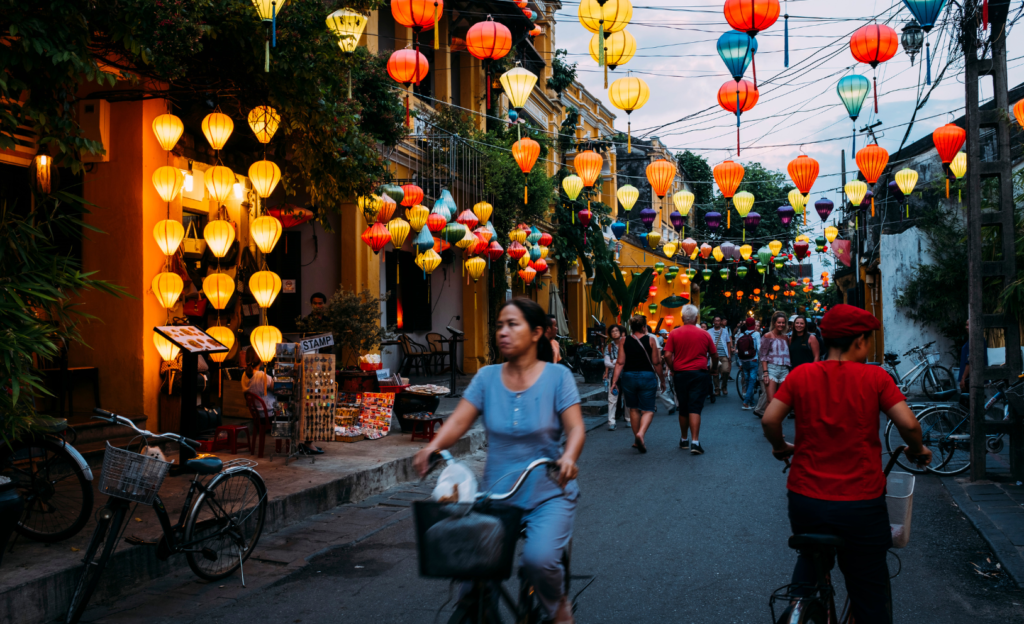
Currency and tipping
The official currency is the Vietnamese Dong (VND). ATMs are widely available in cities, and both Visa and Mastercard are commonly accepted in hotels and larger restaurants. However, rural areas remain cash-based, so carry small notes for local markets and taxis.
Tipping is not customary in Vietnam, but it’s always appreciated for good service. As a guideline:
Guides: $10–$15 per person, per day for full-day tours, or $5–$10 for half-day tours.
Drivers: Around $5 per person, per day.
Hotel porters: Around $1–$2 per bag.
Housekeeping staff: Around $2 per night.
Restaurants and cafes: If a service charge isn’t included, 5–10% is appreciated for good service.
Laws and customs
Vietnam is a welcoming and respectful society, and following local etiquette goes a long way.
– Dress modestly, covering shoulders and knees when visiting temples or rural villages.
– Remove shoes before entering homes and religious buildings.
– When meeting locals, a polite handshake or slight bow is best.
– Always ask permission before taking photos of people, and never photograph military sites or officials.
– E-cigarettes and vaping products are banned as of January 2025 – both sale and use.

Practicalities
Plug type: Vietnam uses plug types A, C, and F. Type A has two flat parallel pins, type C has two round pins, and type F also has two round pins with two earth clips on the side.
Flights and time zone: Flights from London to Hanoi take around 11 hours direct, while flights to Ho Chi Minh City take around 15 hours, usually including a short stopover. Vietnam is 7 hours ahead of GMT (GMT +7).
Language: Vietnamese is the official language, while the language can be tricky for visitors, locals deeply appreciate any attempt to speak it. A few handy phrases:
Xin chào – Hello
Cảm ơn – Thank you
Vâng / Không – Yes / No
Bao nhiêu tiền? – How much is it?
Tạm biệt – Goodbye
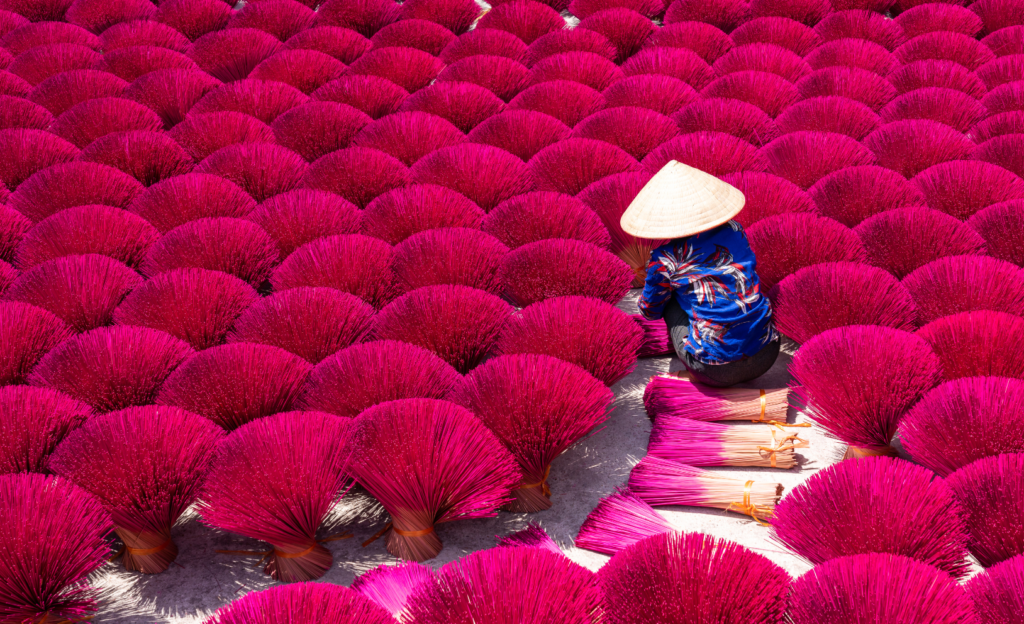
Food and drink
Vietnam’s cuisine is all about fresh, fragrance food, here are some iconic foods and drinks to try on your trip:
Phở: The national dish – a steaming bowl of rice noodles in aromatic broth, topped with herbs, lime, and chilli.
Bánh mì: A French-influenced baguette sandwich filled with grilled meats, pâté, and crunchy pickled vegetables.
Gỏi cuốn: Fresh spring rolls wrapped in rice paper, packed with shrimp, herbs, and vermicelli noodles.
Cà phê sữa đá: Sweet Vietnamese iced coffee with condensed milk – best enjoyed street-side.
Bún chả: Chargrilled pork served with noodles, herbs, and dipping sauce – a Hanoi classic.
Street food is an absolute must: vibrant, fresh, and deeply rooted in regional identity.
Keep connected
We recommend picking up a Viettel SIM card for the best nationwide coverage, or Vinaphone for a slightly more affordable option. For short-term stays, Airalo or Nomad eSIMs are a great hassle-free choice. Wi-Fi is widely available in hotels, cafes, and even on domestic flights, making it easy to stay connected throughout your travels.

